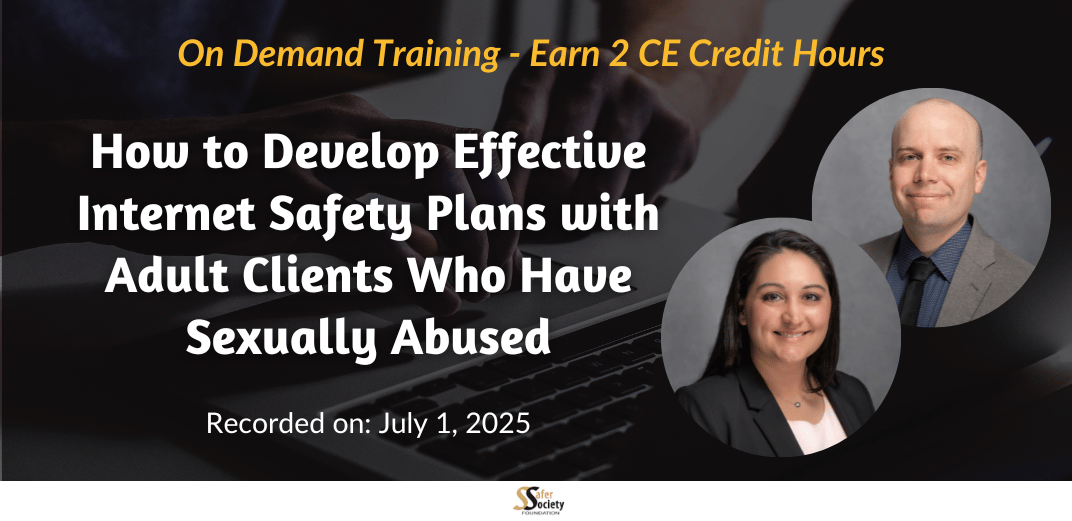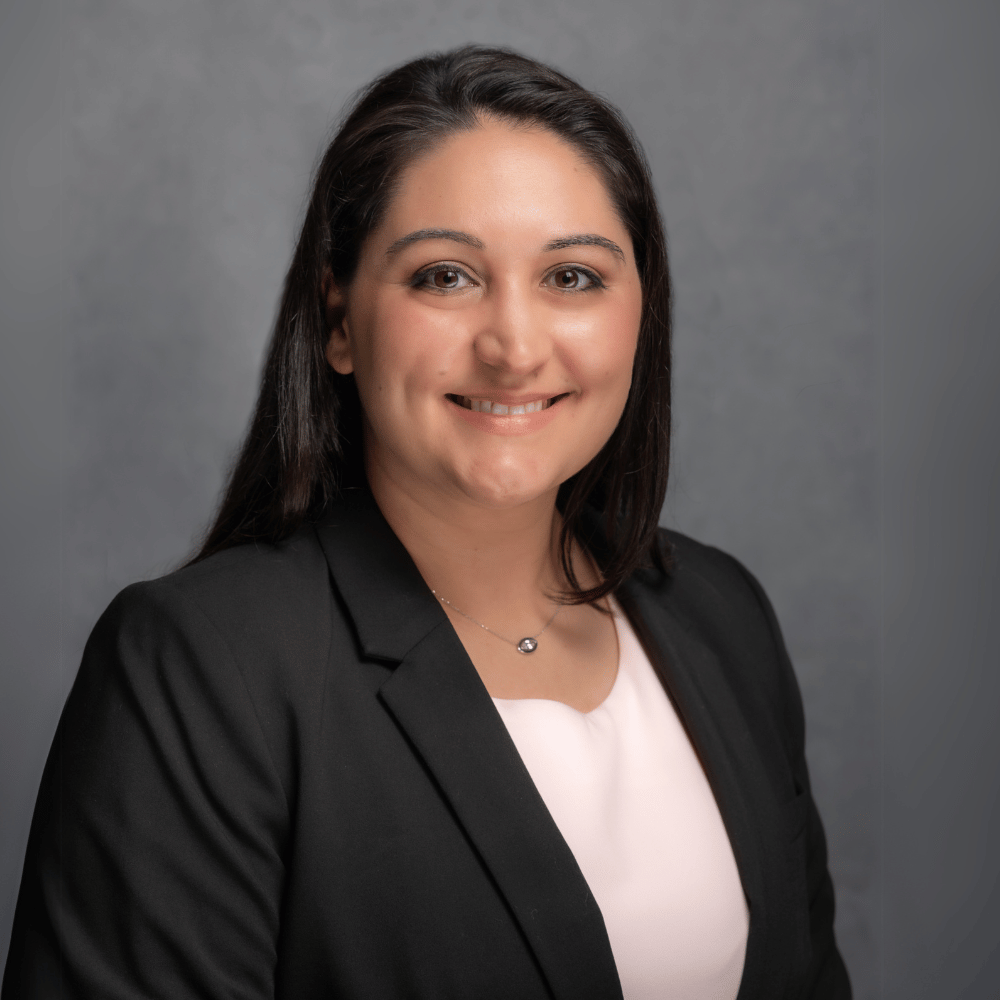
How to Develop Effective Internet Safety Plans with Adult Clients Who Have Sexually Abused
Already purchased an On Demand training?
Click here to access your Safer Society On-Demand Training Center account.
Safety planning for internet use is now a central component of the community supervision of many justice-involved clients. It is also an emerging facet of collaboration between professionals of different disciplines and their clients. Traditionally, clients with histories of sexual offenses were not allowed to have any internet access at all. However, since the internet has evolved as an accessible provider of resources that are available nowhere else, professionals and clients alike need to be more sophisticated about their use of the internet.

In this training, the presenters provide concrete ideas for how to construct effective safety plans for internet use. This includes:
- Having a conversation with clients about the safety planning process
- Using internet safety planning as a therapeutic process rather than as part of a “to-do list” in treatment
- Clarifying what is needed in a safety plan, including what aspects of the internet pose risks for different clients, and how these risks relate to other risk factors in the client’s life
- Identifying the essential components of an internet safety plan
- Considering cultural factors in safety planning
- Helping clients navigate the sexually suggestive environments of media platforms and understand their subconscious influence
There are many benefits to an effective internet safety plan, but few resources have existed to guide the professional. An effective plan can:
- Increase client accountability for their actions
- Protect others as well as the client from online harm
- Help clients develop skills for anticipating internet-related problems
- Increase digital literacy
- Improve access to necessary community resources
The most effective safety plans are individualized to the needs, strengths, and cultural considerations of each client. This naturally brings challenges for professionals seeking to make these plans relevant and meaningful to each client, especially when safety plans are too often little more than a list of rules that may or may not make sense to the client.
1) Describe how to initiate and have conversations with clients in preparation of safety planning for internet use
2) Explain how internet safety planning contributes to stability for clients
3) Identify the essential components of an internet safety plan
4) Guide clients in their navigation of the sexually suggestive environments of media platforms and explain their subconscious influence
Audience
This training is primarily for professionals who work directly with adults who have sexually abused others, particularly those residing in the community. This includes mental health counselors, social workers, clinical psychologists, and forensic experts.
Content Level
Disclosure
Continuing Education Approval
American Psychological Association (APA)
Safer Society Foundation, Inc. is approved by the American Psychological Association (APA) to sponsor continuing education for psychologists. Safer Society Foundation, Inc. maintains responsibility for this program and its content.
Who's Presenting

Jennifer Cinicolo, LMHC-D, ATSA-F
Jennifer Cinicolo, LMHC-D, ATSA-F, has been a dedicated professional in the field since 2013, specializing in trauma-informed treatment and evaluation for justice-involved individuals. As the Assistant Director at Empire State Forensics, an outpatient practice, she plays a pivotal role in providing treatment for adult males and females who commit sexual harm, as well as emerging adults exhibiting problematic sexual behavior, including those responsible for college campus sexual assault. She also works with Non-Offending Minor Attracted Persons (NOMAPS), offering support to those managing their sexual attractions and seeking to improve their overall well-being.
Jennifer’s work extends to intensive, sex-offense-specific treatment through partnerships with the local and federal agencies. She co-leads and facilitates multiple treatment groups, contributing to the recovery and management of individuals in need.
In addition to her clinical work, Jennifer is a respected leader within the field. She serves as Past President of the NYS Chapter of ATSA (Association for the Treatment and Prevention of Sexual Abuse), where she leads initiatives to advance best practices and standards in the field. She also holds the position of Secretary on the board of the New York State Alliance for the Prevention of Sexual Abuse, and an elected committee member for the National Association for the Treatment and Prevention of Sexual Abuse’s Prevention Committee.
In 2023, Jennifer was honored with the ATSA Fellow designation, a distinction held by just 5% of ATSA’s members, further underscoring her commitment to excellence and professional development.

Daniel Gouker, LCSW
Daniel Gouker is a Licensed Clinical Social Worker with Empire State Forensics since July 2023. He has worked in a variety of outpatient settings in the New York City area that specialize in problematic sexual behaviors since 2019. Daniel has worked extensively in an Office of Mental Health Article 31 clinic and Office of Alcohol and Substance Abuse Services outpatient settings working with individuals where a wide range of mental health and substance use concerns co-occur with problematic sexual behavior. He has completed trainings focused on the Good Lives Model, Motivational Interviewing, the STABLE/ACUTE 2007, working with personality disorders and sexual behaviors, and working with existential issues and sexual behavior. He is an ATSA member in good standing.
At Empire State Forensics, Daniel facilitates both group and individual treatment as well as conducting psychosexual risk evaluations. He has experience working with individuals voluntarily seeking assistance for their behavior, individuals who identify as Non-offending Minor Attracted Persons, as well as those involved at various levels of court proceedings, alternative to incarceration, probation, parole, and Strict and Intensive Supervision and Treatment (SIST). Daniel’s therapeutic style incorporates a warm engaging approach, focusing on each client’s unique motivations to make change in ways they understand and align with their values. He has special interest in the intersection of the Good Lives Values of creativity and spirituality and their role in sexual behavior.
